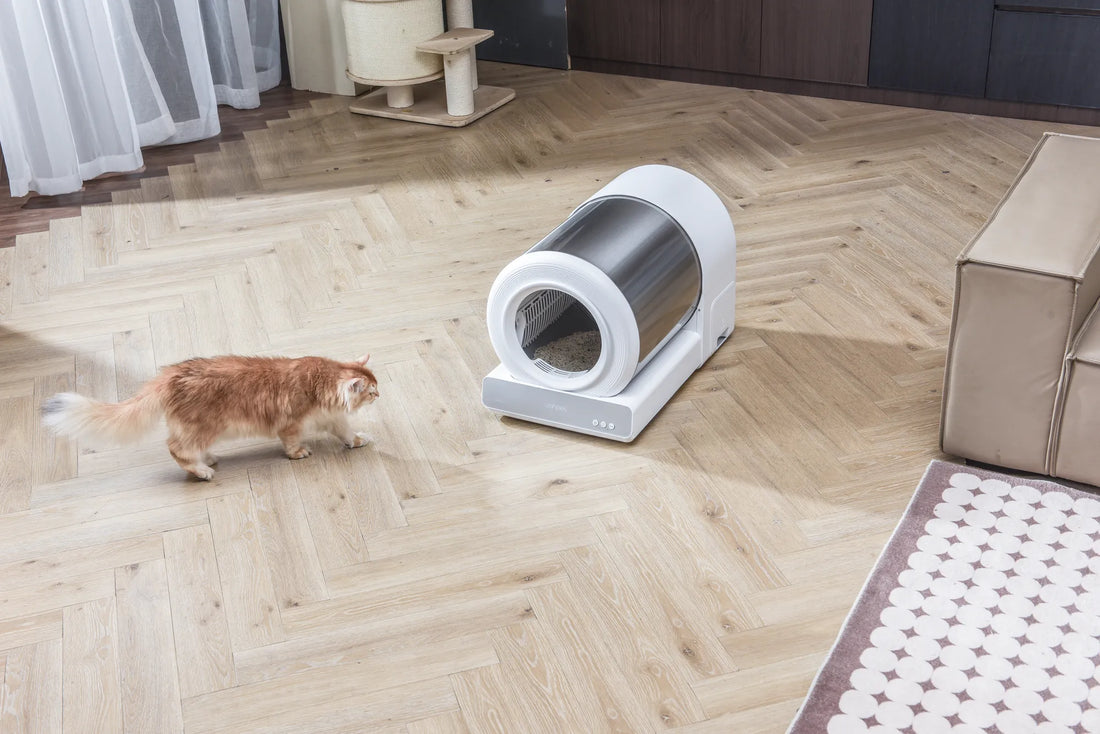Cats are mysterious creatures, often displaying behaviors that leave their owners puzzled. One such behavior is when a cat decides to lay in their litter box. While this might seem odd or even concerning, there are several reasons why a cat might choose to do this. Understanding these reasons can help you better care for your feline friend and ensure their well-being.
Comfort and Security
One of the primary reasons a cat might lay in their litter box is the sense of comfort and security it provides. For cats, the litter box is a familiar space that carries their scent. This can be particularly comforting in a new or stressful environment. If your cat is feeling anxious or overwhelmed, they may retreat to their litter box as a safe haven.
Health Issues
Another reason a cat might lay in their litter box is due to underlying health issues. Cats suffering from urinary tract infections, kidney problems, or other medical conditions may find it difficult to move away from their litter box. They may lay there because they are in pain or discomfort and associate the litter box with relief. If you notice your cat spending an unusual amount of time in their litter box, it's essential to consult a veterinarian to rule out any health concerns.
Environmental Stressors
Cats are highly sensitive to changes in their environment. Moving to a new home, the introduction of a new pet, or even rearranging furniture can cause stress for your cat. In such situations, they may seek solace in their litter box. Ensuring your cat has a stable and comfortable environment can help reduce their stress and prevent this behavior.
Territorial Behavior
Cats are territorial animals, and their litter box is a significant part of their territory. If your cat feels that their territory is being threatened by another pet or even by changes in the household, they may lay in their litter box to assert dominance and mark their territory. Providing multiple litter boxes and ensuring each cat has their own space can help mitigate this behavior.
Litter Box Preferences
Sometimes, the issue lies with the litter box itself. Cats can be particular about the type of litter, the size of the box, and its cleanliness. If the litter box is too small, dirty, or contains litter that your cat dislikes, they may lay in it as a form of protest. Regularly cleaning the litter box and experimenting with different types of litter can help address this issue.
Behavioral Problems
In some cases, laying in the litter box can be a sign of behavioral problems. Cats that are bored, under-stimulated, or suffering from separation anxiety may exhibit this behavior. Providing plenty of toys, interactive playtime, and mental stimulation can help alleviate boredom and reduce the likelihood of your cat laying in their litter box.
Age-Related Issues
Older cats may lay in their litter box due to age-related issues such as arthritis or cognitive dysfunction. These conditions can make it difficult for them to move around, and they may find the litter box to be a comfortable resting spot. Regular veterinary check-ups and making accommodations for your senior cat, such as providing a softer litter or a more accessible litter box, can help manage these issues.
Conclusion
Understanding why your cat is laying in their litter box is crucial for addressing the underlying cause and ensuring their happiness and health. Whether it's due to comfort, health issues, environmental stressors, or behavioral problems, taking the time to observe and understand your cat's behavior can make a significant difference. By providing a stable environment, regular veterinary care, and plenty of love and attention, you can help your cat feel secure and content, reducing the likelihood of them seeking refuge in their litter box.
If you've ever wondered why your cat might choose to lay in their litter box, now you know that there are several potential reasons. By paying attention to your cat's behavior and addressing any underlying issues, you can ensure that your feline friend remains happy and healthy. Remember, a little understanding goes a long way in strengthening the bond between you and your cat.













